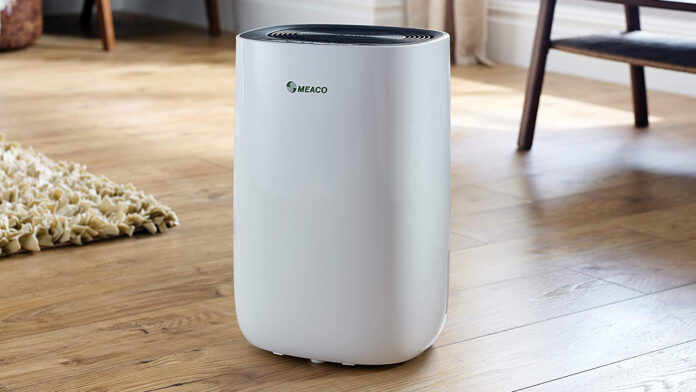The home is the most perfect place for everyone. It’s warm, pleasant and it smells like you belong there. But there are some things that can make the home feel unpleasant.
If you have damp problems in your building or if there is a constant condensation in your house, it can result to a horrible, musty smell and mold growing on your walls. Sorting a major damp problem can take a lot of time, so what can you do in the meantime?
Dehumidifiers are electric gadgets that remove moisture from the air. If your home feels too warm because of the extra moisture or if you feel like you cannot breathe because of it, you should invest in a dehumidifier.
Learn more about what Dehumidifiers are and how they work in this article.
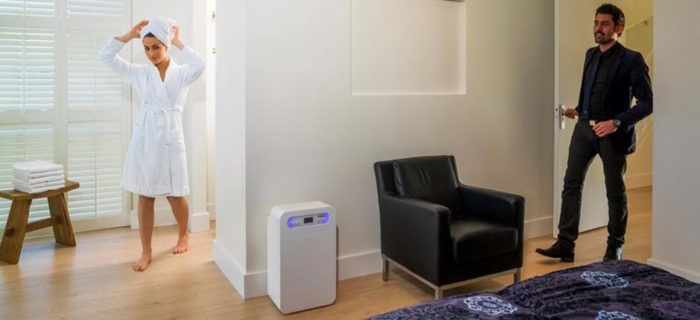
Dehumidification 101
Dehumidifiers are a lot like vacuum cleaners. They suck the moist air from the room at one end and they blow the dry air back out into the room. The moisture drips into a collection tank and, depending on the type of unit, you have to empty the container from time to time.
If you want to know more about how dehumidifiers work, here is a short explanation of their work process:
- The moist air is drawn in through a duct;
- The air moves past a large rotating wheel that’s made of water-absorbing material and it removes the humidity;
- The air is drawn by a fan, operated by an electric motor;
- The dry air is blown back out into the room;
- The air duct is kept hot by an electric heating element;
- The moisture-absorbing wheel rotates through the heated air space and has hot air blown past it to dry it out;
- The air is sucked past by a fan and an electric motor;
- The hot and wet air is blown out through an exhaust duct.
A humidifier adds moisture to the air (used in the dry, winter weather) and a dehumidifier is used to remove the moisture. A central humidification system does both – it can add and remove moisture in the room. Some air conditioners come with a dehumidification option.
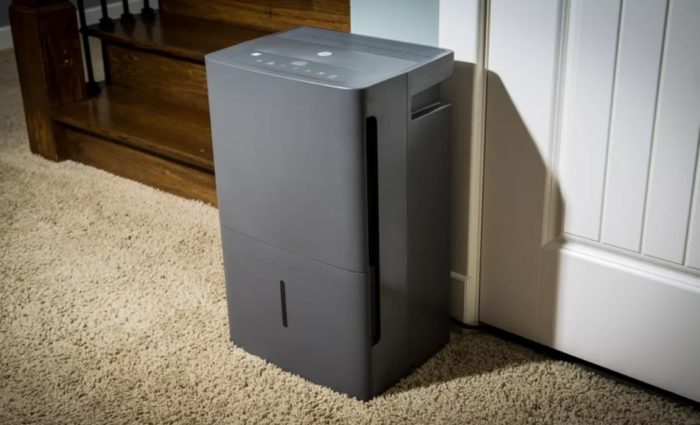
High Humidity Health Problems
When there is excess humidity that will make you feel warm and the humid conditions can cause a lot of issues in the home. Some of them include mildew, mold and property damage. In addition to these material damages, high humidity can lead to a number of health problems. The most common issues that can occur because of high moisture concentration are:
- Poor sleep
- Fatigue
- Headaches
- Heat exhaustion and heat stroke
- Allergies and asthma
- High blood pressure
- Viruses
- Respiratory issues
Other things that can occur in humid conditions are: dust mites, damaged electronics, smelly plants, peeling paint and wallpapers, increased risks of pests and insects, and sticky doors and windows.
Types of Dehumidifiers
There are a lot of different dehumidifiers available on the market. They can have different size, power and options. Click here to check the most popular dehumidifiers available on the market: https://konservatory.co.uk/.
Here are the 4 most common dehumidifying unit types:
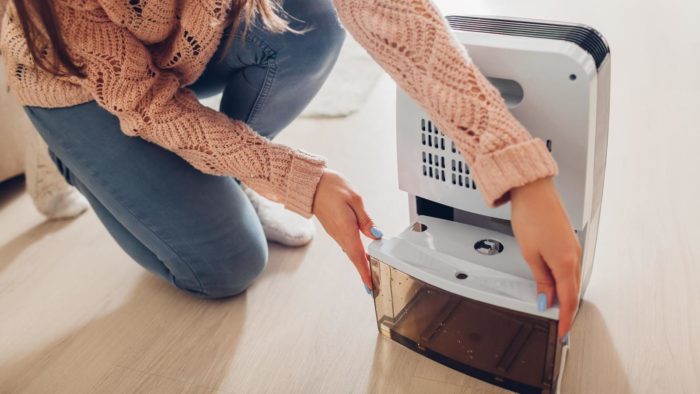
- Homemade Dehumidifier – if you want a DIY project, then you can make your own dehumidifying unit. This should not be your first choice and it definitely is not a permanent solution. Homemade units can be made of road salt, charcoal or a special kind of de-icing salt. There are natural ways to lower your humidity at home that are a better option than homemade units.
- Heat Pump Dehumidifier – these units need a fan, heat pump and heat exchange coils to remove the moisture from the air. The way they work is: with the help of the fan, the air is sent past the heat exchange coils which are extremely cold. Because of this, the moisture condescends and it gets collected.
- Dehumidifying Ventilator – this unit uses an exhaust fan to expel the air outside. It is commonly used in places like attics, crawlspaces and basements. There is a sensor built-in in this unit and it turns on when there is excess humidity in the air.
- Chemical Absorbent Dehumidifier – these units are also called desiccant dehumidifiers. They are made of hydrophilic materials, such as silica gel. They usually have single-use desiccant-type cartridges, gel, and powder.
Some dehumidifiers come with filtration in order to convert condensate into potable drinking water.
There are also portable humidifiers. One of the few disadvantages in them is that you will have to empty the water container constantly. When the container reaches a certain level, the dehumidification unit will turn off. Some dehumidifiers can connect to a drain hose and dispense the water outside.
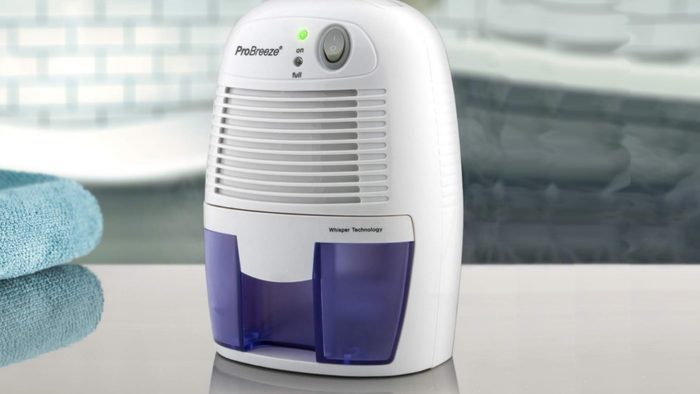
How to compare Dehumidifiers?
There are 2 key measurements you can use to compare the units.
- Water removed per day – bigger machines will remove more water than smaller ones, but depending on the reason why you’re getting a unit and how much humidity there is in the air, some dehumidifiers are better than other. Ask about the water that gets collected in 24 hours before buying a unit.
- Efficiency – some units you will use all the time and some won’t be that frequently used. Depending on the room you are going to use the machine in, you will need information on how much power the dehumidifier consumes.
The indoor humidity is affected by many things. The first one is outdoor humidity levels. Other things include: indoor humidity sources, like the bathroom and kitchen, ventilation and much more. The ideal humidity levels are somewhere between 35% and 50%, even though people are comfortable with humidity levels between 30% and 60%. It all depends on personal preferences, just make sure that by using humidifiers or dehumidifiers you don’t go over 60% or below 30% of room humidity levels.
Before getting a dehumidifier, make a plan where you are going to use it, if you need one or more units, how much space they cover and which is the best one for you. You can choose a portable machine that you can move in different rooms or just one that will cover the whole space. With that information, look for the type of unit that will work best for you and your budget.
Getting a dehumidifier is a great idea, especially if you have respiratory issues or you live with babies and small children. It’s better to protect your health than to risk facing serious health issues later.

